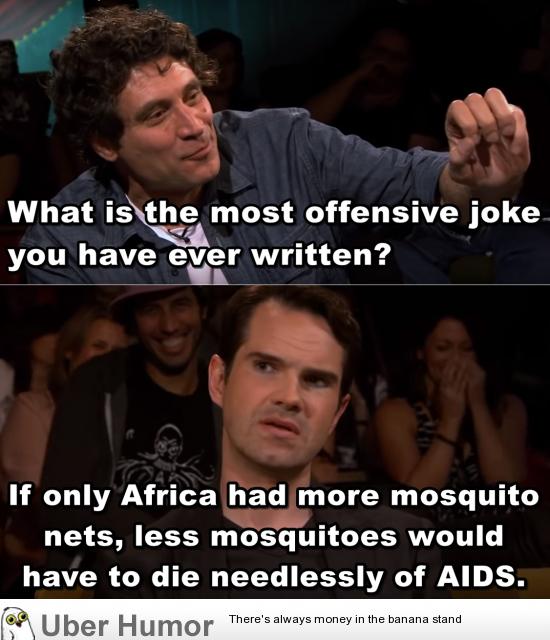9/11 Offensive Jokes: A Balanced Look At Humor, Sensitivity, And Cultural Impact
Humor is a powerful tool that can unite people, but it can also divide when used insensitively. The tragic events of September 11, 2001, remain one of the most significant and emotional moments in modern history. While jokes about serious topics like 9/11 may seem inappropriate to some, they reflect a broader cultural conversation about how society processes trauma through humor. This article explores the nuances of 9/11 offensive jokes, their implications, and the importance of understanding context and sensitivity.
For many, humor serves as a coping mechanism to deal with grief, pain, or shock. However, when it comes to tragedies such as 9/11, the line between light-heartedness and offense becomes razor-thin. Understanding this balance is crucial, not only for comedians but also for anyone engaging in discussions around sensitive topics.
This article will delve into the psychology behind offensive jokes, their historical context, and the potential consequences of crossing boundaries. By examining real-world examples and expert opinions, we aim to provide a comprehensive understanding of the role of humor in relation to 9/11 and similar events.
Read also:Lisa Rhoa The Iconic Actress And Her Remarkable Journey
Table of Contents
- Understanding Humor: The Double-Edged Sword
- The Psychology Behind Offensive Jokes
- The Historical Context of 9/11
Examples of 9/11 Jokes and Their Impact
- Why Sensitivity Matters in Comedy
- Cultural Differences in Humor
Comedy as a Coping Mechanism
- Ethical Considerations in Comedy
- Public Reaction to Offensive Jokes
- Conclusion: Striking the Right Balance
Understanding Humor: The Double-Edged Sword
Humor plays a vital role in human interaction, serving as both a bonding tool and a way to address difficult subjects. However, it can also alienate individuals if not handled carefully. In the case of 9/11 offensive jokes, the sensitivity surrounding the topic makes it particularly challenging to navigate.
Research by psychologists such as Dr. Peter McGraw suggests that humor often relies on violating social norms in a way that feels safe or acceptable. When discussing tragic events like 9/11, the "violation" aspect can evoke strong emotional reactions, leading to debates about whether the joke is appropriate or offensive.
Experts argue that humor's effectiveness depends on timing, audience, and intent. For example, a joke made immediately after the tragedy might be seen as insensitive, while one shared years later could be perceived as a way to process collective trauma.
The Psychology Behind Offensive Jokes
Why do people tell offensive jokes, especially about sensitive topics like 9/11? The answer lies in the psychological need to confront discomfort and challenge taboos. According to Dr. Rod Martin, a leading researcher in humor psychology, jokes can serve as a form of rebellion against societal constraints.
Offensive jokes often push boundaries, forcing listeners to question their own beliefs and values. This can lead to meaningful conversations or, conversely, deep resentment. The key lies in understanding the motivations behind the joke and its potential impact on listeners.
Studies show that people who use humor to cope with stress tend to have better mental health outcomes. However, this coping mechanism must be balanced with empathy and respect for others' experiences.
Read also:Wedding Updos For Dreads A Comprehensive Guide To Stylish And Elegant Hairdos
The Historical Context of 9/11
The events of September 11, 2001, marked a turning point in global history. Nearly 3,000 lives were lost, and countless others were forever changed. The attacks on the World Trade Center and Pentagon not only affected the United States but also resonated worldwide, sparking debates about terrorism, security, and international relations.
Understanding the historical significance of 9/11 is crucial when discussing offensive jokes related to the tragedy. The emotional weight of the event means that any attempt at humor must be approached with care and consideration.
According to a report by the Pew Research Center, public perception of 9/11 remains strong even decades later, highlighting the enduring impact of the tragedy on collective memory.
Examples of 9/11 Jokes and Their Impact
Over the years, several comedians have attempted to tackle 9/11 through humor, with varying degrees of success. Below are some examples:
- George Carlin: Known for his sharp wit, Carlin addressed 9/11 in his later works, emphasizing the absurdity of the situation without trivializing the tragedy.
- Louis C.K.: In a controversial stand-up routine, Louis C.K. joked about the inconvenience of missing flights due to 9/11, sparking both laughter and criticism.
- Jon Stewart: As host of "The Daily Show," Stewart used satire to critique the media's coverage of 9/11, often walking a fine line between humor and respect.
These examples illustrate how comedians navigate the delicate balance between humor and sensitivity. While some jokes are well-received, others can alienate audiences and spark backlash.
Why Sensitivity Matters in Comedy
Comedy has the power to challenge norms and provoke thought, but it also carries the responsibility of respecting diverse perspectives. When discussing 9/11 offensive jokes, sensitivity becomes paramount. Audiences include survivors, family members of victims, and those deeply affected by the tragedy, making it essential to consider their feelings.
Comedians like Trevor Noah have spoken about the importance of empathy in comedy. By acknowledging the pain behind the laughter, they create a space for healing rather than harm. This approach not only strengthens the comedian's authority but also builds trust with their audience.
A study published in the Journal of Personality and Social Psychology found that empathetic humor fosters stronger social connections and reduces conflict. This highlights the value of approaching sensitive topics with care and understanding.
Cultural Differences in Humor
Humor is deeply rooted in cultural context, meaning what one group finds funny, another may find offensive. For instance, American humor often relies on exaggeration and sarcasm, while other cultures may prefer more subtle forms of wit.
In the case of 9/11 jokes, cultural differences play a significant role. While some international audiences may find humor in the absurdity of the situation, others may view it as disrespectful. This highlights the need for comedians to be aware of their global audience and adapt their material accordingly.
Experts suggest that cross-cultural understanding can enhance the effectiveness of humor, allowing it to bridge gaps rather than widen them. By recognizing these differences, comedians can create content that resonates with diverse audiences.
Comedy as a Coping Mechanism
For many, humor serves as a crucial coping mechanism during times of crisis. Studies show that laughter can reduce stress hormones, improve immune function, and increase resilience. In the aftermath of 9/11, comedians and everyday people alike turned to humor as a way to process the trauma.
However, the effectiveness of comedy as a coping mechanism depends on the individual's perspective. While some find solace in laughter, others may feel invalidated by jokes about their pain. This underscores the importance of tailoring humor to the audience's needs and experiences.
Research from the American Psychological Association supports the idea that humor can be a powerful tool for healing, provided it is used thoughtfully and respectfully.
Ethical Considerations in Comedy
Comedy is not exempt from ethical scrutiny, especially when it comes to sensitive topics like 9/11. Comedians must weigh the potential benefits of their jokes against the risk of causing harm. This requires a deep understanding of ethics and responsibility in their craft.
One ethical framework for evaluating comedy involves considering the intent, impact, and audience. For example, a joke intended to highlight inequality might be more acceptable than one meant purely to shock or offend. Similarly, the impact on marginalized groups should be carefully assessed before proceeding.
Experts in media ethics emphasize the importance of transparency and accountability in comedy. By acknowledging the limitations of their jokes and engaging in open dialogue with their audience, comedians can foster trust and credibility.
Public Reaction to Offensive Jokes
The public's response to 9/11 offensive jokes varies widely, reflecting differing opinions on the appropriateness of humor in the face of tragedy. Social media platforms have amplified these discussions, allowing individuals to voice their concerns and engage in debates about the limits of comedy.
Some critics argue that offensive jokes perpetuate stereotypes and undermine efforts to heal from collective trauma. Others believe that humor, even when controversial, has a place in processing difficult emotions. This divide highlights the complexity of addressing sensitive topics through comedy.
Data from a 2020 survey conducted by Gallup shows that younger generations are more likely to accept edgy humor, while older demographics tend to view it with skepticism. This generational gap adds another layer to the conversation around 9/11 jokes.
Conclusion: Striking the Right Balance
In conclusion, 9/11 offensive jokes represent a complex intersection of humor, sensitivity, and cultural context. While they can serve as a tool for processing trauma and challenging norms, they must be approached with care and respect for those affected by the tragedy.
By understanding the psychology behind humor, recognizing cultural differences, and prioritizing empathy, comedians and audiences alike can navigate this delicate terrain more effectively. As we continue to grapple with the legacy of 9/11, it is crucial to foster open dialogue and mutual understanding.
We invite you to share your thoughts on this topic in the comments below. Your input helps create a more informed and respectful conversation about the role of humor in our lives. For more insights on comedy and its impact, explore our other articles on related subjects.


